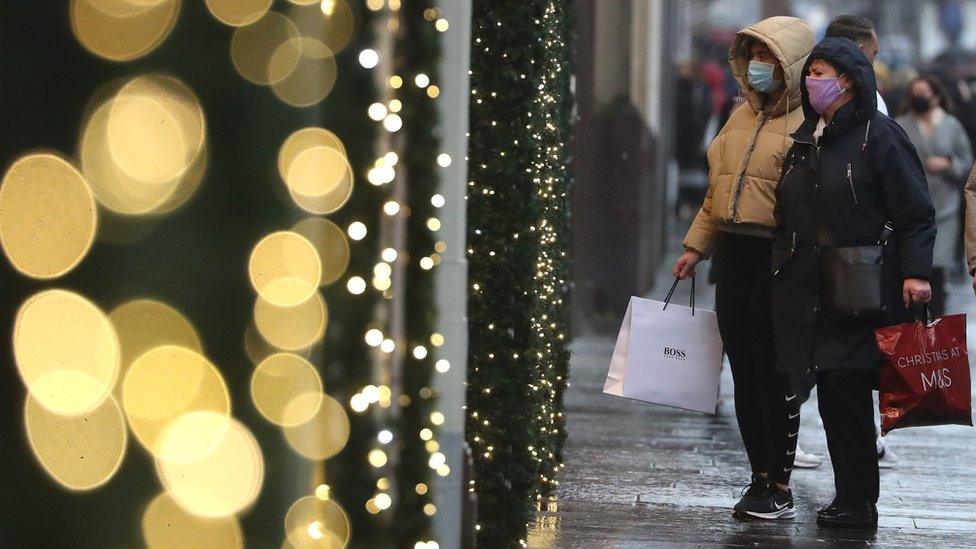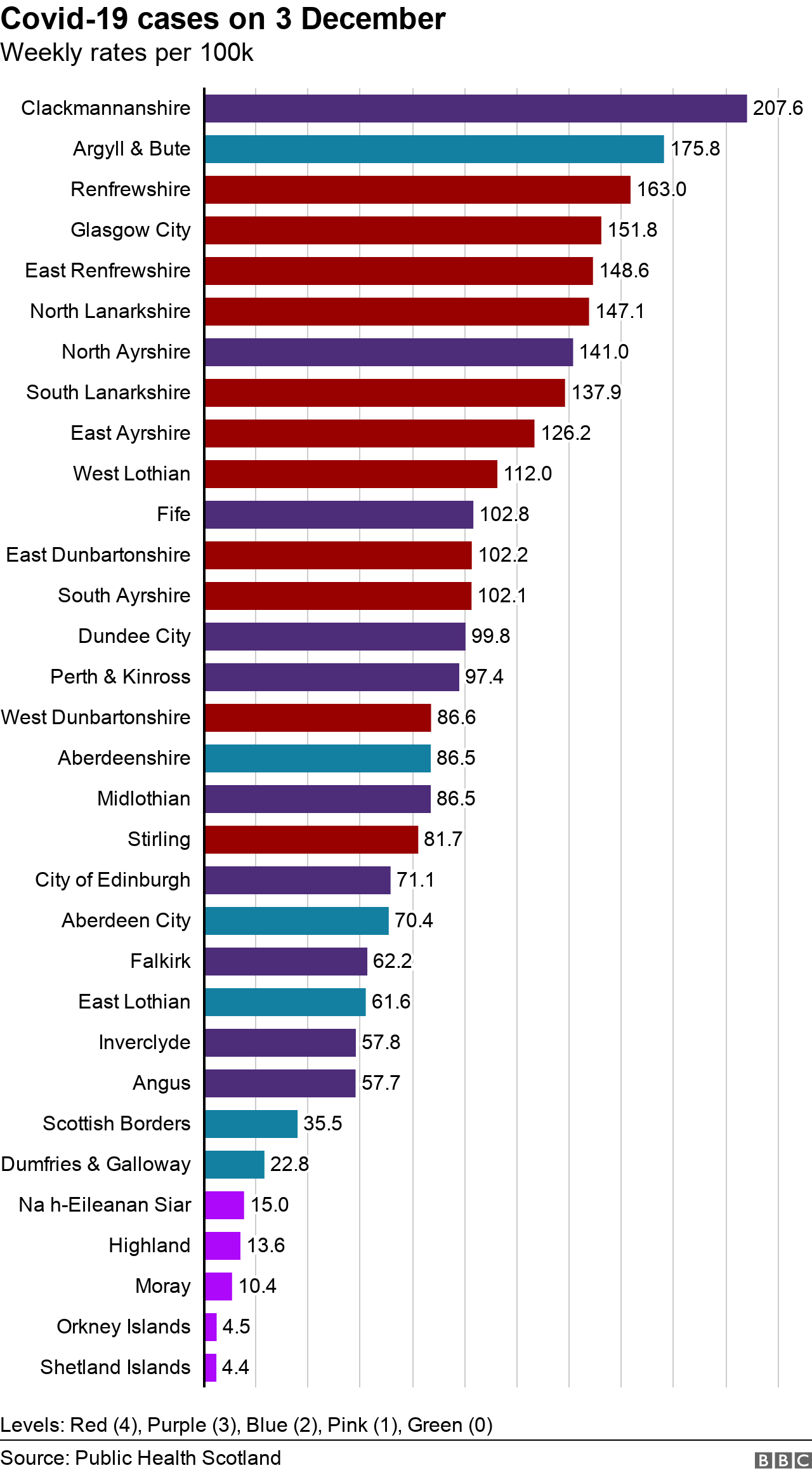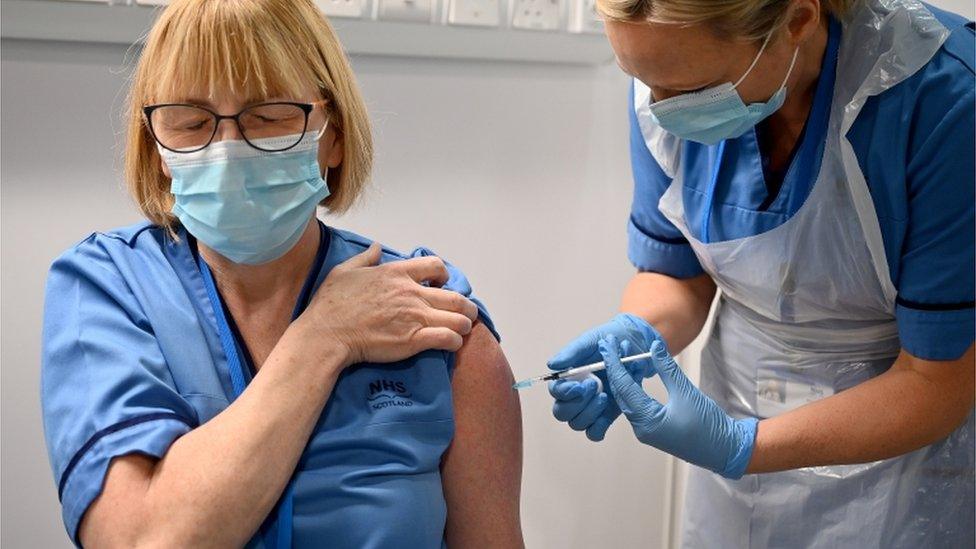Scotland's toughest Covid restrictions to be eased
- Published
- comments

Pubs, restaurants and non-essential shops have been closed across much of the west of Scotland since 20 November
All 11 areas living under Scotland's toughest level four coronavirus restrictions are to be downgraded to level three, it has been confirmed.
The move means that non-essential shops and many other businesses across much of western and central Scotland will be able to reopen from Friday.
More than two million people have been subject to the level four restrictions since 20 November.
Infection rates in all 11 council areas have fallen since then.
It has also been confirmed that three level three areas - Inverclyde, Falkirk and Angus - will move down to level two.
And both Dumfries and Galloway and the Scottish Borders will move to level one from level two.
All of the country's other council areas will remain in their current levels.
Retail premises which have been closed under the level four restrictions will be allowed to re-open from 06:00 on Friday, with the other restrictions being eased from 18:00 on the same day.
But hospitality businesses in level three areas must close their doors by 18:00 - meaning they will have to wait until Saturday to welcome back customers for food and non-alcoholic drinks.
Announcing the changes in the Scottish Parliament, First Minister Nicola Sturgeon urged people to "continue to exercise care and caution".
And she said that travel restrictions will remain in place, meaning that people should not travel in or out of level three areas unless it is essential.
People living outside of Glasgow should therefore not travel to the city for Christmas shopping when stores reopen on Friday, for example.
Ms Sturgeon added: "As we know from our experience of Covid so far, progress can very easily go into reverse.
"So please continue to abide by the rules. That means, in particular, not visiting other people's houses."

The first minister also told MSPs that she considered moving Edinburgh down to level two - but the closeness to the Christmas period meant that this did not happen.
She also said the government was closely monitoring Clackmannanshire, which is remaining in level three for now despite having the highest number of confirmed cases per 100,000 in the country.
Ms Sturgeon said it was thought that the sharp rise in case numbers could be attributed to a mass testing pilot that is being carried out there, adding: "The issue is more cases being identified rather than a rise in transmission."

There had been concern that Aberdeen and Aberdeenshire could move from level two to level three - but Ms Sturgeon said cases in both areas had dropped slightly in recent days.
However, she said the situation would be monitored very carefully, with a move to level three not being ruled out in the weeks ahead.
The first minister said further support for businesses affected by the restrictions would be announced on Wednesday.
Scottish Conservative group leader Ruth Davidson said businesses in areas such as Edinburgh, which have relatively low case numbers, would find it a "bitter pill to swallow" that restrictions would not be eased because "ironically they might get too much trade" ahead of Christmas.
Scottish Labour leader Richard Leonard also criticised the decision not to move Edinburgh down to level two when the data appeared to show the infection was under greater control there than in other parts of the country.

The first vaccinations against the virus started on Tuesday morning
The announcement on the country's restriction levels came as vaccinations began at sites across Scotland.
An initial batch of 65,000 doses of the Pfizer/BioNTech vaccine arrived in Scotland at the weekend - with those who will be giving the vaccine to others being the first to be injected with it.
Ms Sturgeon said the vaccination programme presents the "beginning of the end" of the pandemic.
But she urged people to continue to think about how to keep themselves and others safe in the meantime.
The deaths of a further 33 people who had tested positive for the virus have been recorded in the past 24 hours, alongside an additional 692 positive tests.

